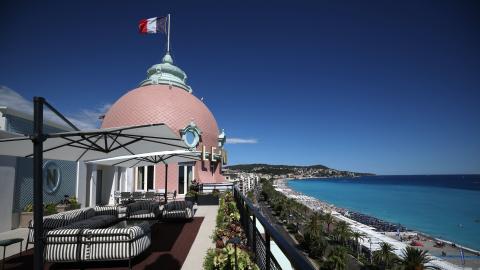In her recent state of the union speech, European Commission President von der Leyen announced that Europe is in “a fight for our future.” Russia’s rising aggression—both in the form of conventional warfare in Ukraine and hybrid operations across the continent—makes this statement hard to debate.
In many respects, Europe has responded accordingly. European nations have provided considerable aid to Ukraine and made significant strides in rebuilding their defense industrial bases, a political sea change from just a few years ago. Additionally, European Union sanctions on Russian energy exports—alongside American efforts—are beginning to strangle Moscow’s isolated economy.
But contrary to these productive measures, Russian tourists remain free to enjoy the fruits of European hospitality. Last year, EU member states collectively issued 541,000 uniform visas via consulates located in Russia, a 20% increase from 2023. By continuing to welcome Russians, European nations are sending conflicting messages to Russia and their own citizens. Worse, authorities have expressed concern that Russians entering the EU on tourist visas could conduct espionage or take part in sabotage operations.
On Friday, the EU further tightened rules on Russians traveling to Europe, severely restricting multi-entry visas. “Travelling to the EU is a privilege, not a given,” noted EU High Representative for Foreign Affairs and Security Policy Kaja Kallas.
This is a welcome development, as the European bloc has thus far been unable to join together to keep Russian tourists from the continent. While the EU has pushed members to restrict visas to Russians, the decision whether to issue them ultimately rests with individual governments.
Notably, much of Europe has long acknowledged the holistic nature of this “fight for its future” and cut down on Russian tourism. Yet Czech Foreign Minister Jan Lipavsky, in a July speech, commented, “It is deeply troubling to see some EU countries returning to business as usual with Russian tourists while Ukraine continues to suffer under brutal aggression.”
This was a pointed remark. Around 85% of tourist visas issued to Russians last year were issued by just four nations: France, Greece, Italy, and Spain. For each of these four EU members, the number of uniform visas issued to Russians increased each year from 2022 to 2024.
There is precedent for these nations to move toward a de facto ban on Russian tourism. Finland issued a whopping 782,173 uniform visas through their Russian consulates in 2019. Last year it issued only 3211—a 99.6% drop. Several EU nations have made similarly drastic cuts to Russian visas: the Czech Republic (99.9%), Poland (99.8%), Estonia (98.9%), Latvia (98.8%), Lithuania (97.9%), Germany (94.7%), Sweden (92.5%), and Belgium (91%).
These nations’ decision to turn away Russian tourists was not painless. The loss of hundreds of thousands of tourists each year has wide-ranging economic effects. This was especially acute for countries bordering Russia. But the long-term benefit—reinforcing to the Russian people that their nation’s invasion of its sovereign neighbor has consequences—will outweigh these costs.
Some prominent voices, including Yulia Navalnaya, the widow of slain Russian opposition leader Alexei Navalny, have argued that banning Russian travel would be counterproductive and feed the Kremlin’s propaganda. But there is a key irony in the outcomes of the current policy. The Russians who still travel to Europe are those who can afford the high costs Europe imposes and navigate the political barriers Moscow has erected to prevent defection and capital flight. Naturally, these tourists tend to come from the elite sectors of society closest to the Kremlin.
Putin’s war has been and continues to be supported by the majority of Russian society. Support for the regime will remain strong until Russians, particularly the elite, feel the impact of the government’s decisions and recognize there is no way back to normalize relations with the West so long as its imperial revanchism remains.
Most European nations have done the right thing and all but banned Russian tourists. It is time for the recalcitrant countries of southern Europe to follow suit and send a clear message: Russians are not free to enjoy the beaches and ski slopes of Europe while their country wages a hot war against Ukraine and a shadow war against the broader West.


















